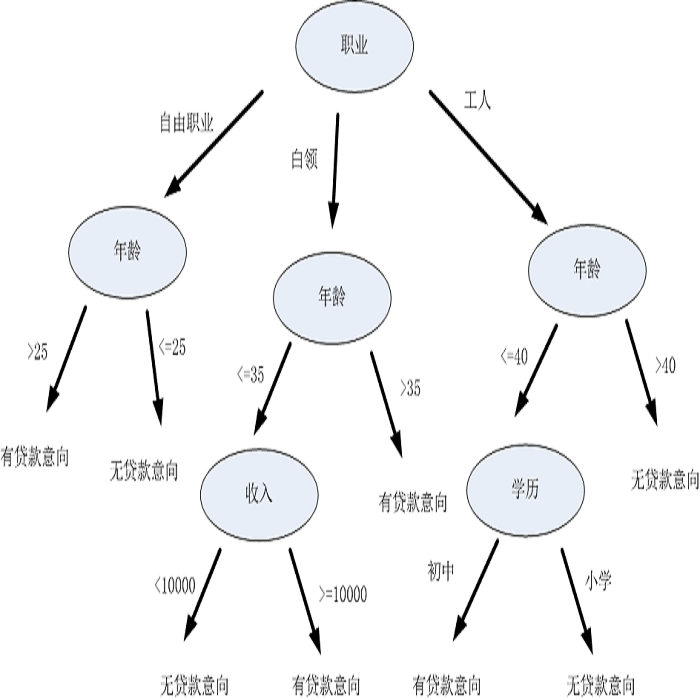Most existing Secure Multi-Party Computation (MPC) protocols for privacy-preserving training of decision trees over distributed data assume that the features are categorical. In real-life applications, features are often numerical. The standard ``in the clear'' algorithm to grow decision trees on data with continuous values requires sorting of training examples for each feature in the quest for an optimal cut-point in the range of feature values in each node. Sorting is an expensive operation in MPC, hence finding secure protocols that avoid such an expensive step is a relevant problem in privacy-preserving machine learning. In this paper we propose three more efficient alternatives for secure training of decision tree based models on data with continuous features, namely: (1) secure discretization of the data, followed by secure training of a decision tree over the discretized data; (2) secure discretization of the data, followed by secure training of a random forest over the discretized data; and (3) secure training of extremely randomized trees (``extra-trees'') on the original data. Approaches (2) and (3) both involve randomizing feature choices. In addition, in approach (3) cut-points are chosen randomly as well, thereby alleviating the need to sort or to discretize the data up front. We implemented all proposed solutions in the semi-honest setting with additive secret sharing based MPC. In addition to mathematically proving that all proposed approaches are correct and secure, we experimentally evaluated and compared them in terms of classification accuracy and runtime. We privately train tree ensembles over data sets with 1000s of instances or features in a few minutes, with accuracies that are at par with those obtained in the clear. This makes our solution orders of magnitude more efficient than the existing approaches, which are based on oblivious sorting.
翻译:多数现有的保密多党计算协议(MPC)用于对分布数据的决策树进行隐私保护培训的保密协议(MPC)大多都假定这些特征是绝对的。在现实生活中,特征往往是数字性的。标准“在清晰的算法中”为连续值数据培养决策树,要求为每个特征在每一个节点的特征值范围内寻找最佳切分点,对每个特征进行分类,对每个特征进行分类是昂贵的操作,因此在MPC中找到避免这种昂贵步骤的安全协议,是私下进行隐私保护机器学习的一个相关问题。在本文中,我们提出三种更高效的替代方法,用于对基于连续特征数据的决策树模型进行安全培训,即:(1) 确保数据离散,然后对离散数据树进行安全的培训;(2) 确保数据分解,随后对随机森林进行关于离散数据范围的培训;(3) 在原始数据的基础上对极随机的树木进行安全培训(“Extra-tritele't're a complical complical sess), 方法(方法)和(3) 都涉及随机地选择特征选择。此外,在选择(3) 将数据排序中进行分选的分选取的顺序,这样,我们在数据将数据进行分级评估,我们现有的数据进行分级评估,我们现有的数据,以所有的分级计算。
相关内容
Source: Apple - iOS 8





